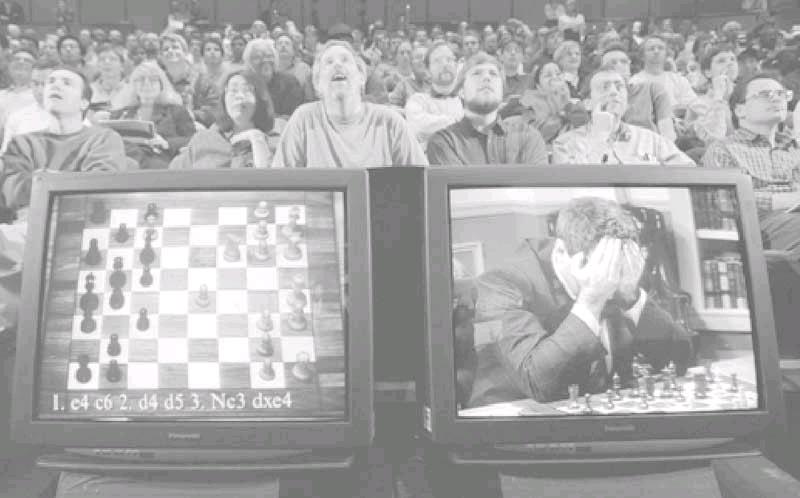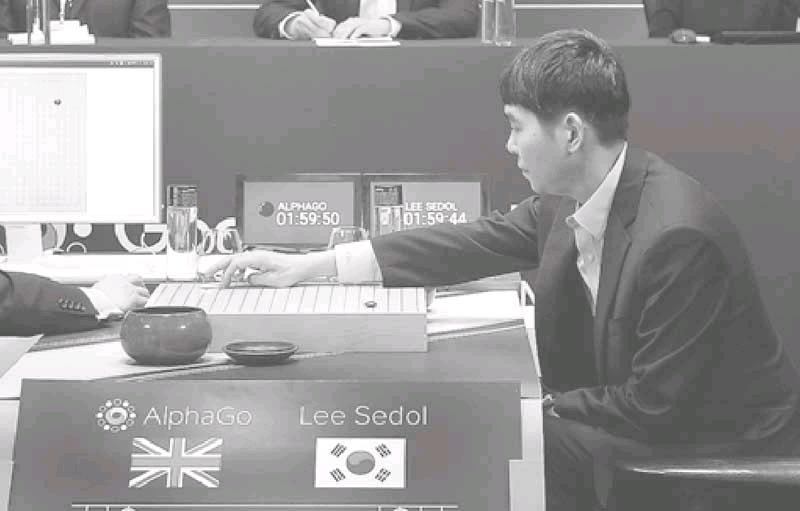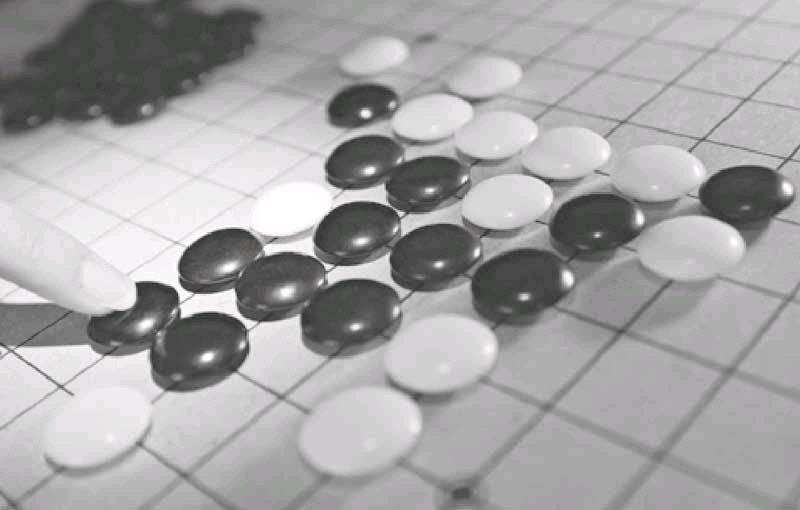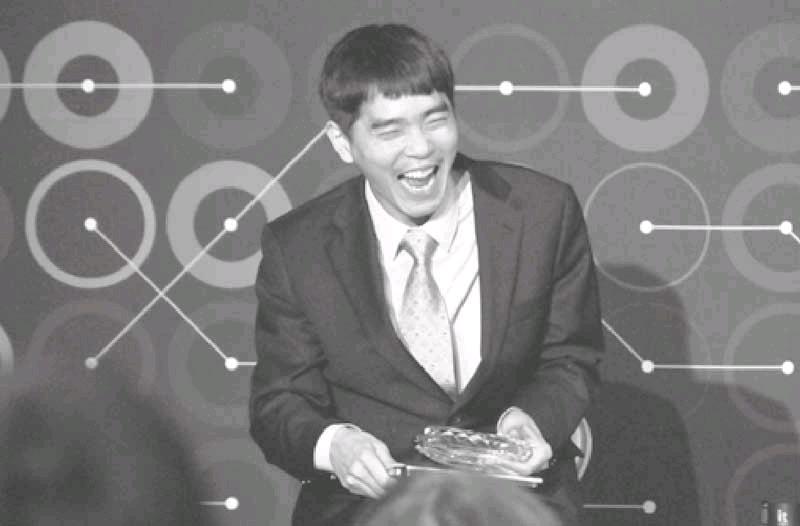Google:AlphaGo Beats Go master Lee Se-dol
In March, 2016, Googles Al- phaGo program has beaten a master Go player 3-0 in a bestof-five competition, which is be regarded as a landmark moment for artificial intelligence.
The computer program was playing against Lee Se-dol in Seoul, in South Korea. Before the competition started, Mr Lee had been very confident that he would win.
Go is a game of two players who take turns putting black or white stones on a 19-by-19 grid. Players win by taking control of the most territory on the board, which they achieve by surrounding their opponents pieces with their own.
The 3,000-year-old Chinese board game is considered to be a much more complex challenge for a computer than chess.
Go is thought to date back to several thousand years ago in China.
Using black-and-white stones on a grid, players gain the upper hand by surrounding their opponents pieces with their own.
The rules are simpler than those of chess, but a player typically has a choice of 200 moves, compared with about 20 in chess - there are more possible positions in Go than atoms in the universe, according to DeepMinds team.
It can be very difficult to determine who is winning, and many of the top human players rely on instinct.
According to one of Lees former coaches, “AlphaGo played consistently from beginning to the end while Lee, as he is only human, showed some mental vulnerability”.
Lee Se-dol, having won numerous professional tournaments in his long career, is regarded as a successful champion Go player.
In their first round of the competition, AlphaGo triumphed by a very narrow margin. During the game, Lee Sedol had led for most of the match, but AlphaGo managed to build up a strong lead in its closing stages.
After losing the second round of the match with Deep Mind, Lee Se-dol said he was “speechless”, and admitted that the AlphaGo machine played a“nearly perfect game”.
The two experts who made commentary for the YouTube stream of for the third round of the game said that it was a very complicated match to follow.
According to them, Lee Se-dol had brought his “top game” but that AlphaGo had won “in great style”.
The AlphaGo system, developed by British computer company DeepMind, was bought by Google in 2014.
It has built up its expertise through studying older games and teasing out patterns of play. And, according to Demis Hassabis, chief executive of DeepMind, it has also spent a lot of time just playing the game.endprint
He said, “It played itself, different versions of itself, millions and millions of times and each time got incrementally slightly better, and it even learns from its mistakes.”
Because of this virtuous circle of constant improvement, the super computer went into the five-match series stronger than when it beat the European champion late last year.
What does this mean for artificial intelligence?
Artificial Intelligence (AI) has relation with games since its beginnings, because only smart humans excel. Unlike the real world, a closed system of fixed rules suits computing.
Despite critical opinions, Arthur Samuels draughts playing program was an incredible achievement in 1959.
Like AlpahGo, it learned by playing itself repeatedly only many orders of magnitude slower.
And then, the goal posts moved. Some critics said chess was beyond computings capability because it needed human intuition and creativity. However, then when good amateur challengers had to eat their words in the 1970s, the goal post shifted again.
Some critics said that a horizon where computers might beat some professionals but certainly not grand masters.
Therefore, when IBMs Deep Blue supercomputer beat world champion Garry Kasparov in 1997, the world was astonished. But Deep Blue was not the human-like intelligence that the founding fathers of AI had expected for. It won by brute force by searching through millions of moves in seconds. Humans beings have limited memory and need brilliant pattern perception and creative strategies to win.
Therefore, the critics turned to Go as the impossible. Even with todays vast computer memories and incredibly fast processors (which have doubled more than eight times since Deep Blue), the ancient match will not yield to brute force. The size of the search required for Go is larger than chess by more than the number of atoms in the universe. It is the holy grail of AI match.
When Facebook announced earlier this year that their program had beaten a strong Go amateur, the whole AI community was shocked, and even more surprised when same day Googles Deep Mind genius team announced that their AlphaGo beat the European champion 5-0.
To beat one of the worlds top players, Deep Mind used a mixture of clever strategies to make the search much smaller. They trained their machine on 30 million expert moves to start with, and then the learning machine played against itself millions of times. It worked, the holy grail is in the bag and the goal posts can shift no further.endprint
Does this mean AI is now smarter than human beings and will kill us people? Certainly not. AlphaGo doesnt care if it wins or loses. It doesnt even care if it plays and it certainly couldnt make you a cup of tea after the game.
Hundreds of thousands of people have watched the game live on TV and YouTube. Many experts gave Lee a lot of credits to win the series. But After AlphaGo beat Lee in a comanding style for three straight games, and most reversed to believe the supercomputer is unbeatable for human players, at least for Lee.
AlphaGos next opponent?
The victory means a lot not only to Lee, but also more meaning to the worlds top ranked Ke Jie, an 18-yearold Chinese player, who believed he has a 60 percent chance to defeat AlphaGo prior to the series kicking off.
Now Ke, the youngest player with three world titles ever, who said”AlphaGo cant beat me”, found the grounds to back up his proclamations.
According to him, “Im happy to see Lee win finally and this helps me in my confidence. Just like I said, AlphaGo has its weakness. Lee is not in AlphaGos match, but he can not represent humanity and hes not the right person to take the challenge. A lot of Go followers had accused me of bragging or big talking for my remarks on their encounter after AlphaGo leading 3-0,” said Ke. “Im mad with these accusations, and I stick to my belief ‘AlphaGo cant beat me. Im not an arrogant guy when I say what I said. The Google staff said‘no matter who I am, AlphaGo can beat me within three months after the Game 3, but I would say they cant make that happen at all.”
Demis Hassabis, Google Deepminds CEO is willing for Ke to line up as AlphaGos next opponent.
Some experts had forecast it would take another decade for computers to beat professional Go players. But that changed when AlphaGo defeated the European Go champion Fan Hui last year in a 5-0 whitewash, in a closed-door match later published in the journal Nature. After that, AlphaGos performance has steadily improved.
Computers conquered chess in 1997 in a match between IBMs Deep Blue and chess champion Garry Kasparov, leaving Go as “the only game left above chess”. endprint
endprint
- 中国经贸聚焦·英文版的其它文章
- Chinese companies prepare to modernize rail systems globally
- How do other countries supervise vaccination?
- Latest Public Official Changes in China
- Exhibitions
- Hu Haifeng Jiaxing Vice Secretary served as Acting Mayor
- Cheng Lianyuan Kunming Party Secretary served as Provincial Committee Leader

